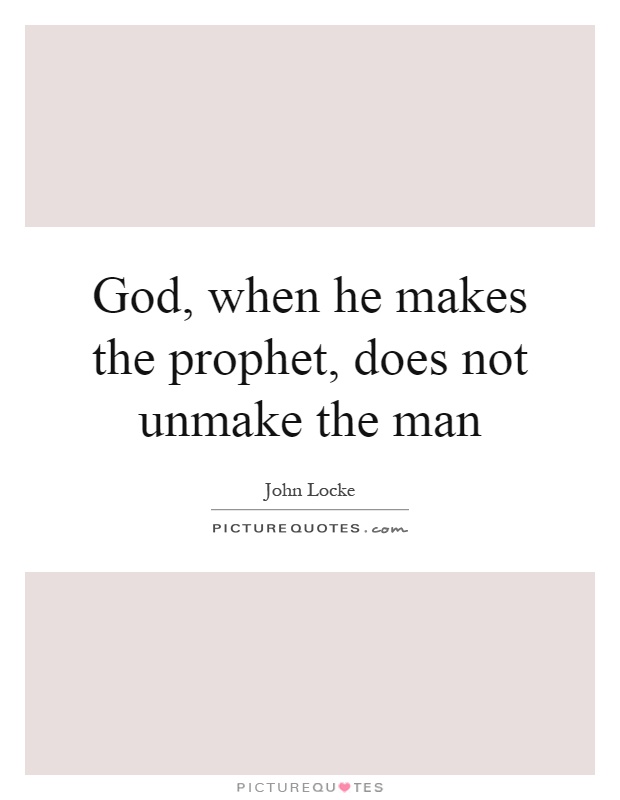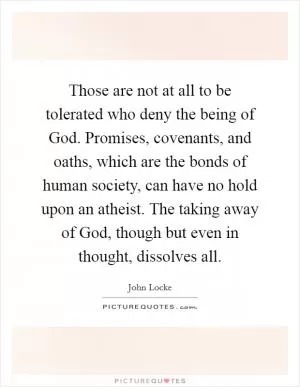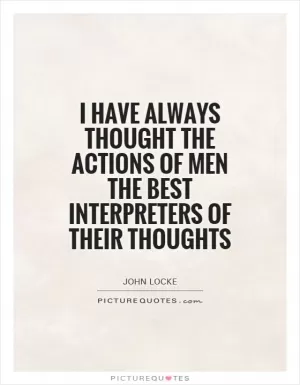God, when he makes the prophet, does not unmake the man

God, when he makes the prophet, does not unmake the man
John Locke, a prominent philosopher of the Enlightenment era, believed in the separation of church and state and the importance of individual liberty. In his writings, Locke often discussed the relationship between religion and politics, and the role of the prophet in society. The quote "God, when he makes the prophet, does not unmake the man" can be interpreted in the context of Locke's philosophy as emphasizing the idea that individuals who are chosen by God to be prophets do not lose their humanity or individuality in the process.Locke believed that all individuals are born with natural rights and that these rights should be protected by the government. He argued that individuals have the right to freedom of thought, conscience, and religion, and that the state should not interfere with an individual's beliefs or practices. In this context, the quote can be seen as a reminder that even those who are chosen by God to be prophets are still human beings with their own thoughts, feelings, and experiences.
Locke also believed in the importance of reason and rationality in religious and political matters. He argued that individuals should use their reason to determine their beliefs and that faith should be based on evidence and logic. In this context, the quote can be interpreted as a reminder that prophets, like all individuals, should use their reason and critical thinking skills to interpret and understand their religious experiences.
Furthermore, Locke's emphasis on the importance of individual liberty and autonomy can be seen in the quote. He believed that individuals should have the freedom to choose their own beliefs and practices, and that the state should not impose religious beliefs on its citizens. In this context, the quote can be seen as a reminder that prophets, like all individuals, should have the freedom to express their beliefs and opinions without fear of persecution or censorship.












 Friendship Quotes
Friendship Quotes Love Quotes
Love Quotes Life Quotes
Life Quotes Funny Quotes
Funny Quotes Motivational Quotes
Motivational Quotes Inspirational Quotes
Inspirational Quotes